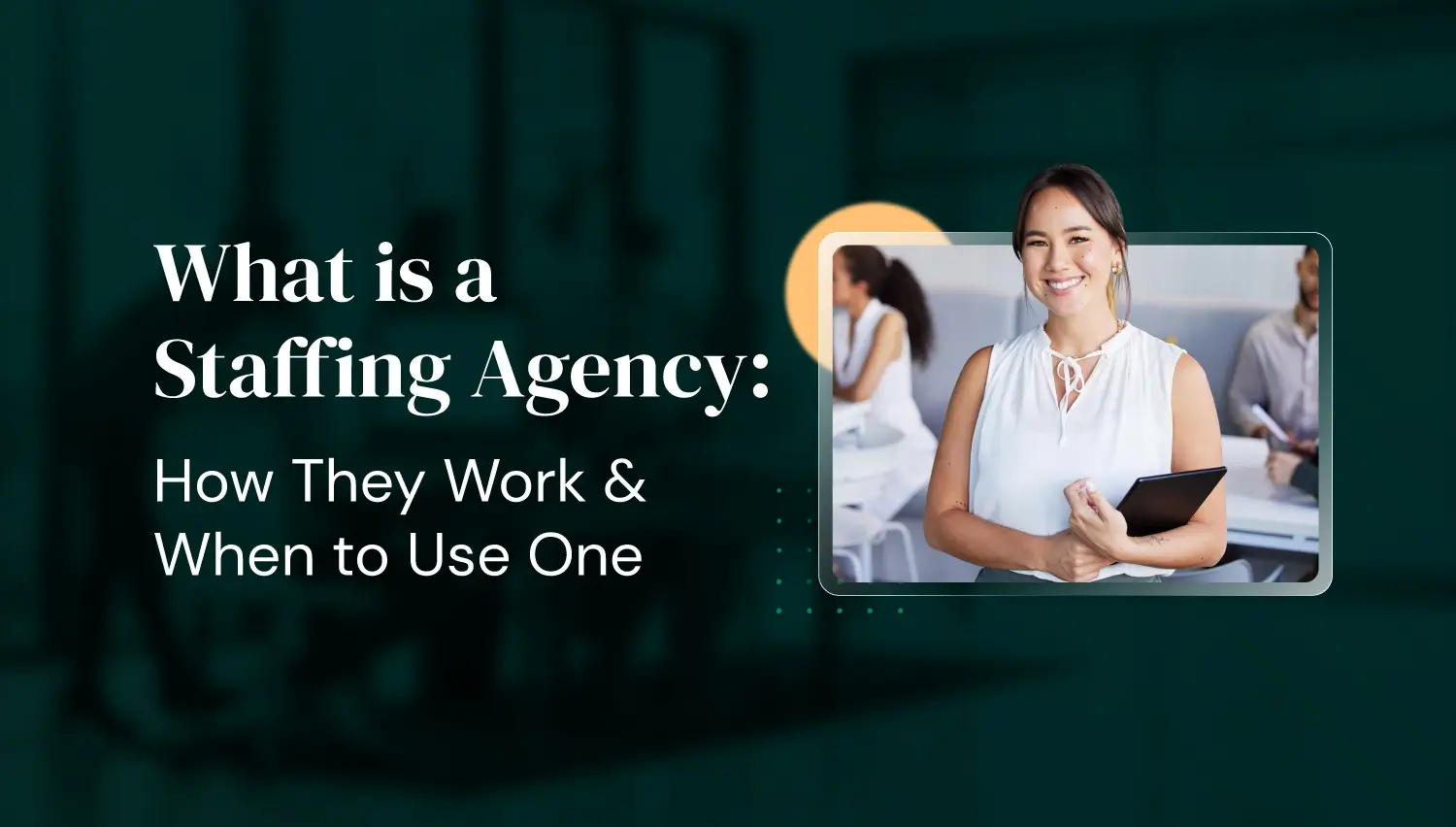I once interviewed a candidate whose resume was one of the best I'd ever seen: Relevant post-grad degree, marquee brand employers, a list of achievements that would impress any boardroom. As we sat down, he offered a firm handshake and confident smile. Everything about him seemed right.
But as the interview unfolded, an unsettling pattern emerged. When I asked how he'd handle sudden client scope changes, he gave a textbook answer about "agility" without a concrete example. I pressed for a time he'd failed and recovered, and he gave me a vague story with no real stakes. When I shifted to how he'd build trust in a remote team, he rattled off jargon about "collaboration tools" but never spoke about people.
By the end, I realized I knew what he'd done in his career, but nothing about how he thought, coped under pressure, or solved messy, real-life problems. I couldn't picture him in the trenches with the team.
That reinforced a lesson I learned years earlier: interviews aren't just about confirming facts on a resume. The questions we ask are our only window into how someone thinks, learns, and adapts, which, especially in today's fast-changing work environment, is the difference between a great hire and a costly mistake.
If you're hiring, you need to know what to ask and what to avoid in order to spot the best talent.
The Purpose Behind Interview Questions
Too often, interviews turn into polite conversations that skim the surface instead of diving deep. A solid resume can tell you what someone has done, but only by knowing how to interview someone and the right questions reveal how they think, decide, and collaborate when things get tough.
Great interview questions serve a clear purpose: they help you assess not just skills, but mindset. Are you talking to someone who thrives on feedback? Can they navigate uncertainty? Do they understand how their role connects to broader business goals?
Whether you're hiring for a technical role or a leadership position, the aim is the same: get past rehearsed answers to uncover the person behind the resume.

The Evolution of Interviewing in the Modern Workplace
There's a reason the same old interview questions ("Where do you see yourself in five years?") no longer cut it. The world of work has changed faster than many hiring processes have kept up.
Today's interviews have to probe for skills that weren't even on the radar a decade ago: remote collaboration, cross-cultural communication, resilience in the face of constant change. For companies hiring globally distributed teams, the stakes are even higher. It's not enough to know a candidate can do the job; you need to know how they'll think and operate in contexts that are often messy, asynchronous, and diverse.
I've seen clients struggle when relying on gut feel instead of structured, purposeful questioning. They end up hiring someone technically competent but unable to handle real-world dynamics like shifting priorities, fast pivots, or remote team tensions.
Rather than being just a gatekeeping ritual, the modern interview is a strategic tool to predict future success. The better you frame your questions, the clearer that prediction becomes. Don’t forget that you should also need to ask follow-up interview questions, to increase the chances of pinpointing the best candidate.
Crafting Effective Interview Questions
Interviewing well isn't just about being personable or intuitive. It's about systematically gathering evidence to predict whether someone will succeed in your specific role, on your specific team. That means your questions need to be deliberately crafted, not generic, not copied from internet lists, and certainly not thrown together at the last minute.
Below is a practical approach to designing questions that actually help you make good hiring decisions.
Understanding the Role Requirements
Good questions start with clarity about what you're hiring for. I've worked with hiring managers who told me they wanted a "self-starter," but when I pressed for details, they couldn't explain what that meant day to day. You can't write effective questions if you can't define the job in concrete terms.
Ask yourself:
- What core problems is this person being hired to solve?
- What results or deliverables will prove success in this role?
- What skills, tools, or processes must this person already know versus what can be trained?
- What personality traits tend to make people succeed or fail in this environment?
Once you answer these questions, turn them into specific competencies. For example, if the job demands juggling shifting stakeholder demands, that's a competency in stakeholder management under uncertainty. Your interview questions should test for precisely that. If you are hiring an executive assistant, you should ask effective executive assistant interview questions.
Behavioral vs. Situational Questions
Many hiring managers lump these together, but they serve different purposes.
Behavioral questions ask for stories from the past. They reveal what the person has actually done and give you real evidence to judge. For example:
- Tell me about a time you had to deliver bad news to a client.
- Describe a situation where you had to learn a new tool or skill quickly.
When candidates answer, listen for specifics: what they did, why they chose that approach, what the outcome was, and what they learned. Vague or general answers are red flags.
Situational questions are hypothetical. They explore how a person would approach challenges they may not have faced yet. For example:
- Imagine a team member disagrees with your solution in front of stakeholders. How would you handle it?
- If you inherited a half-completed project with tight deadlines, what would your first steps be?
Situational questions are especially useful for junior candidates who may lack a deep track record but can still demonstrate strong thinking and problem-solving.
In my experience, the strongest interviews combine both types. Behavioral questions show proof of past behavior. Situational questions reveal how someone thinks on their feet.
Open-Ended Questions to Encourage Dialogue
Closed questions kill interviews. They allow candidates to give a one-word "yes" or "no" and leave you no data to evaluate.
Instead of asking,
"Are you comfortable managing remote teams?"
ask,
"Can you tell me about your approach to managing remote teams? What's worked well, and what's been challenging?"
This small shift forces candidates to reveal their methods, reasoning, and mindset. The best interviews sound less like interrogations and more like conversations where you're digging into how someone approaches their work.
A helpful technique is the "tell me about a time…" prompt, followed by follow-ups like:
- What was the situation?
- What actions did you personally take?
- What was the result?
- What would you do differently next time?
These follow-ups help you peel back layers and avoid surface-level stories.
Avoiding Leading or Biased Questions
Even well-meaning hiring managers sometimes frame questions in ways that hint at the "right" answer. This not only skews your data but can introduce bias.
For example, avoid:
"We're a high-pressure environment. You're okay with that, right?"
Instead, ask:
"How do you handle competing demands or periods of high pressure at work? Can you share an example?"
Another common bias trap is loaded phrasing, such as:
"Don't you think remote work makes communication harder?"
Instead, keep it neutral:
"How has working remotely affected your communication with colleagues? What's worked and what hasn't?"
Your goal is to give the candidate space to answer truthfully, not steer them toward what you want to hear.
Connecting Questions to Real Job Outcomes
This is where many interviews fall apart. You can ask excellent questions all day long, but if they don't relate to the outcomes that matter in your company, you'll gather irrelevant data.
For each question you write, challenge yourself:
- What competency or behavior am I trying to measure?
- How will this help me predict success or failure in this role?
- How does this question connect to the business challenges we're trying to solve?
Let's say you're hiring for a client-facing project manager role. A vague question like, "Are you organized?" is useless. A much better question would be:
"Tell me about a time when a client kept changing the scope of a project. How did you manage expectations and protect timelines?"
This links directly to a real problem the role will face and tests whether the candidate can navigate it.
Tailoring Questions to Your Company Culture
Crafting great interview questions isn't just about checking off technical skills. It's also about figuring out whether a candidate will thrive in your specific work environment. Culture fit, or, increasingly, culture add, is one of the biggest predictors of long-term success and retention.
I've seen companies hire incredibly talented people who ultimately failed, not because they lacked skill, but because they didn't share the team's values, communication style, or pace of work. The cost of those mismatches is high: lost time, disrupted teams, and a restart of the entire hiring process.
Below are practical ways to tailor your interview questions to assess cultural alignment without falling into vague or legally risky territory.
Reflecting Company Values
Start by defining what your company truly values. Not the slogans on the website, but the lived behaviors you reward and expect. For example, if your company prides itself on direct feedback, you'll want to test whether candidates are comfortable giving and receiving it.
Instead of asking, "Do you value transparency?" try:
- "Tell me about a time you received feedback you disagreed with. How did you handle it?"
- "How do you approach giving constructive feedback to peers or managers?"
If collaboration is central to your culture, ask:
"Describe a situation where you had to work closely with people who had different working styles from yours. What did you do to keep the project on track?"
These questions anchor culture in specific, observable behaviors, rather than vague traits.
Assessing Soft Skills and Emotional Intelligence
Technical skills may get someone hired, but soft skills determine how well they operate inside your organization. I've seen brilliant engineers crash and burn because they couldn't handle conflict or adapt to changing team dynamics.
To evaluate emotional intelligence, consider questions like:
- "Tell me about a time when you had to adapt your communication style to work effectively with someone."
- "Can you share an example of when you recognized that someone on your team was struggling? How did you handle it?"
- "Describe a situation where you made a mistake at work. What did you learn, and how did you communicate it to your team?"
These types of questions give candidates the chance to demonstrate empathy, self-awareness, and resilience. All critical for healthy team dynamics.
Accounting for Work Environment
Another factor is how your team operates day-to-day. Some cultures are fast-paced and direct. Others are consensus-driven and methodical. Neither is inherently better, but a mismatch can create frustration on both sides.
Consider asking:
- "How do you like to receive updates on projects: frequent check-ins or more independent progress?"
- "When priorities change suddenly, how do you adjust your work?"
- "What kind of decision-making process helps you feel comfortable moving forward on a project?"
Listen for clues about pace, independence, and communication style and ask time management questions. For example, someone who values a methodical approach might struggle in an environment where priorities change daily.
Being Aware of Bias Risks
A word of caution: assessing culture fit can slide into bias if you're not careful. "Would I like to have a beer with this person?" is not a legitimate hiring criterion. Focus on whether someone can thrive in your specific work environment, not whether their personality matches yours.
Keep your questions tied to observable behaviors and workplace scenarios. That's how you ensure fairness, reduce unconscious bias, and still hire people who'll succeed in your culture.

Common Risks When Designing and Asking Interview Questions
Crafting great interview questions isn't just about what you ask; it's also about what you avoid asking. Even thoughtful interviewers can unintentionally create problems that lead to poor hiring decisions or legal risks.
Here are some of the most common mistakes I see when it comes to interview questions, and how to steer clear of them.
Asking Only Technical or Skill-Based Questions
One of the biggest mistakes is focusing solely on technical competence. I've seen hiring managers run interviews that felt like an exam, ticking off skills from a list, but learning nothing about how the candidate thinks, adapts, or works with others.
If you only ask technical questions, you risk missing red flags in communication style, cultural fit, or problem-solving. To avoid this:
- Mix technical questions with behavioral and situational ones that probe how candidates navigate challenges.
- For example, instead of just asking, "Do you know how to use [specific tool]?" also ask, "Tell me about a time you had to learn a new tool quickly. How did you approach it?"
Leading Questions That Reveal the "Right" Answer
Many interviewers unintentionally signal the answer they're hoping to hear. This creates polite conversations where candidates tell you what you want instead of revealing their true thinking.
For example:
- Leading: "We're a fast-paced team. You're okay with that, right?"
- Neutral alternative: "How do you handle periods when work becomes fast-paced or unpredictable?"
Avoid phrasing that includes assumptions or implies judgment. Keep your questions neutral so you hear the candidate's authentic perspective.
Overly Vague or Broad Questions
Another common pitfall is asking questions so broad that candidates have no idea where to start, or end up giving generic answers that tell you nothing.
For instance:
- Too broad: "Tell me about yourself."
- More targeted: "Tell me about a project you worked on recently that challenged you. What was your role, and what did you learn from it?"
Specificity helps candidates share meaningful stories that give you evidence to evaluate.
Asking Illegal or Inappropriate Questions
This may sound obvious, but it still happens more than people realize. Questions about age, marital status, children, religion, or medical conditions are off-limits. Even casual small talk can drift into dangerous territory if you're not careful.
Instead of asking, "Are you planning to have children soon?" (which is illegal), focus on job-related topics like:
- "Are you able to meet the travel requirements for this role?"
- "Are you comfortable working the schedule required for this position?"
Always keep your questions tied directly to the essential functions of the job.
Relying on Hypotheticals Without Probing for Examples
Situational questions are useful, but on their own, they only reveal what someone thinks they might do. They don't prove how someone has acted in the past.
Don't stop at hypotheticals. Follow up with:
"Have you faced a similar situation before? Can you tell me how you handled it?"
Real-world examples carry far more predictive value than hypothetical intentions.
The Questions You Ask Define the Team You Build
No matter how impressive a resume looks on paper, it's the questions you ask that reveal whether someone will truly thrive on your team. Interviews aren't just a ritual. They're your best chance to look beneath the surface and discover how candidates think, solve problems, and connect with others.
We've entered an era where hiring decisions carry bigger consequences than ever. Teams are more distributed, projects move faster, and the cost of a mis-hire can ripple through an entire organization. But with thoughtful, well-crafted questions, you can transform your interviews from polite conversations into powerful tools for predicting future success.
Whether you're hiring locally or globally, remember: great teams start with great conversations. Make yours count and don't be afraid to seek help refining your approach. It's an investment that pays off every time you welcome the right person onto your team.
Partner with Experts to Refine Your Interview Questions
The right interview questions can reveal how candidates think, solve problems, and fit into your team, but designing those questions takes time and expertise. Many of the clients I've worked with initially felt confident in their hiring instincts, only to discover they were missing crucial signals or leaving gaps in their process.
If you're building remote or global teams, the stakes are even higher. You're not just hiring skills. You're hiring people who can collaborate across time zones, cultures, and fast-changing business environments.
That's where a partner like Somewhere comes in. We specialize in helping companies shape not only their talent strategies but also the practical tools (like custom interview frameworks) that ensure you're asking the questions that matter most.
If you're ready to strengthen your interviews and build a team equipped for today's world of work, reach out to the Somewhere team through the form below. Let's make sure your next hire is the right one.














